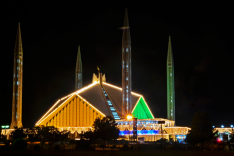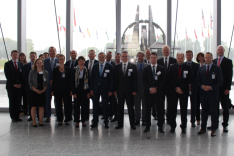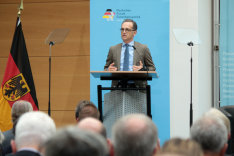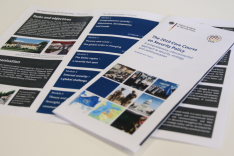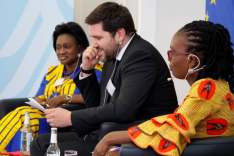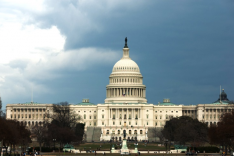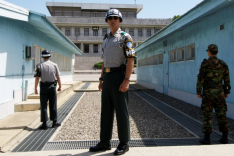First-hand impressions are irreplaceable. That is why the Course for Senior Officials has travelled to South Asia for the second time this year. The visit includes high-level talks in Pakistan and India. Picture: Muzaffar Bukhari/Flickr/cut to size/CC BY-NC-SA 2.0
Weitere Beiträge
The Course for Senior Officials crossed the border between Pakistan and India near Wagah at the only crossing point open exclusively to passenger traffic.
The US have doubts about its partners, the littoral states of the Baltic Sea about their security and the EU about its unity. 25 participants looked for answers on site in the 2018 Core Course.
Cyber attacks, Brexit and doubts about the transatlantic partnership: Europe is faced with a myriad of security policy challenges. The German Forum on Security Policy 2018 was an occasion for high-ranking representatives from politics, government agencies and society to discuss the prospects of closer cooperation within the EU. At the beginning of the forum, German Foreign Minister Heiko Maas demanded: “We finally have to make Europe fit for foreign policy!”
The 2019 Core Course on Security Policy focuses on digitalization and the Baltic region. The nomination process is open for international participants until early December.
At the outset of the module on Internal Security, the Core Course met the President of the Federal Criminal Police Office (BKA), Holger Münch, and the Vice President of the Federal Office for the Protection of the Constitution (BfV), Thomas Haldenwang.
Africa is ranking high on Europe's and Germanys political agendas. Against this backdrop, the Federal Academy for Security Policy and the GIZ held an international conference on the future of the African Peace and Security Architecture.
In March 2019, Great Britain will leave the EU. What does that mean for Europe’s future security policy? The core course spoke with representatives of the British Embassy about Great Britain’s future role in Europe. The talks also focussed on relations with Russia.
The study tour to the United States is a key component of the core course. Dr Sven Brenner, a participant, shares his impressions from Washington, D.C. and New York City.
Given the changes in US policy, both East Asia and Europe face a common question: How credible is America's nuclear security assurance? Against this background the Korean Research Institute for Security Affairs, the Konrad Adenauer Foundation, and the Federal Academy for Security Policy invited nuclear policy experts for a discussion in Seoul.

